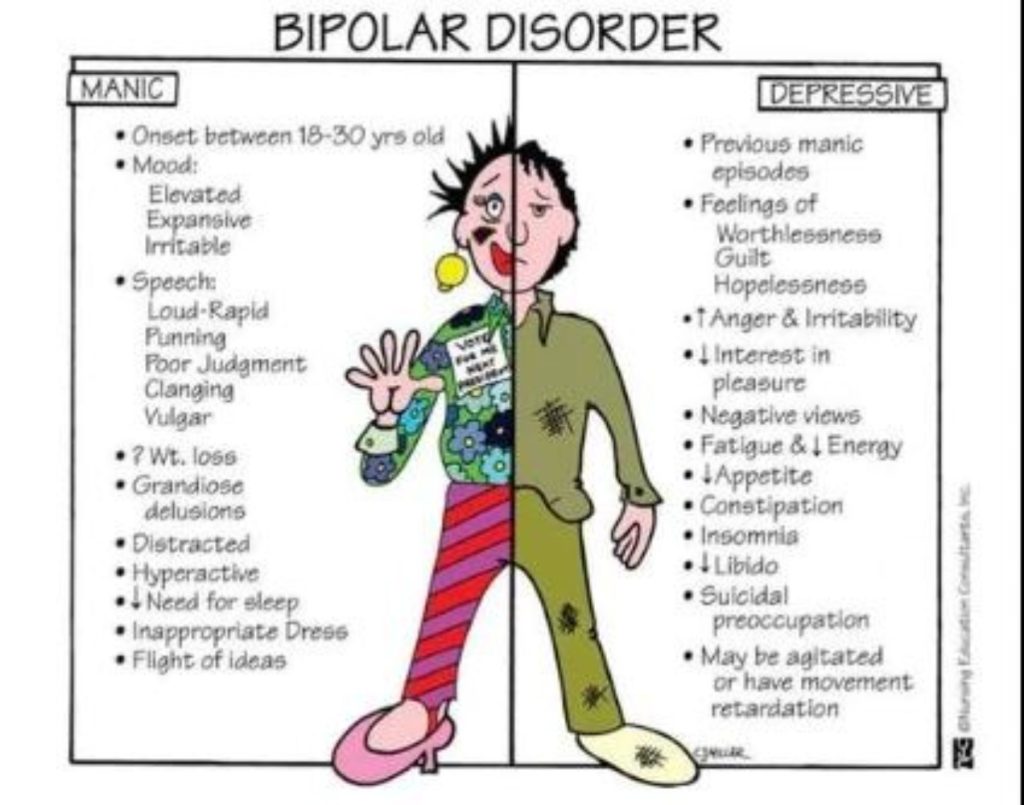Long-term, ongoing treatment can help control symptoms and enable you to live a healthy life along with clinical trials, their benefits and risks, and whether one is right for you.

World Bipolar Day is commemorated each year on 30 March, the birthday of Vincent Van Gogh, who was diagnosed posthumously with bipolar. This international initiative aims to raise awareness about bipolar disorder, fight stigma, and empower those living with the condition. To subscribe please click tau.id/2iy6f and access our live channel.
What is bipolar disorder?
Bipolar disorder (formerly called manic-depressive illness or manic depression) is a mental illness that causes unusual shifts in a person’s mood, energy, activity levels, and concentration. These shifts can make it difficult to carry out day-to-day tasks.
ALSO CHECK: Children with Dyslexia Suffer Language Problem
Types of Bipolar
There are three types of bipolar disorder. All three types involve clear changes in mood, energy, and activity levels. These moods range from periods of extremely “up,” elated, irritable, or energized behavior (known as manic episodes) to very “down,” sad, indifferent, or hopeless periods (known as depressive episodes). Less severe manic periods are known as hypomanic episodes.
Sometimes a person might experience symptoms of bipolar disorder that do not match the three categories listed above, and this is referred to as “other specified and unspecified bipolar and related disorders.”
How common is this disorder?
An estimated 4.4% of adults in western world experience bipolar disorder at some time in their lives. More than 2 million adults or 1 percent of the population age 18 or older in any given year have bipolar disorder. India has much lower, around 0.1%. But considering our population, even that becomes a very significant number.
Symptoms & Signs of Bipolar Disorder
| Symptoms of a Manic Episode | Symptoms of a Depressive Episode |
|---|---|
| Feeling very up, high, elated, or extremely irritable or touchy | Feeling very down or sad, or anxious |
| Feeling jumpy or wired, more active than usual | Feeling slowed down or restless |
| Having a decreased need for sleep | Having trouble falling asleep, waking up too early, or sleeping too much |
| Talking fast about a lot of different things (“flight of ideas”) | Talking very slowly, feeling unable to find anything to say, or forgetting a lot |
| Racing thoughts | Having trouble concentrating or making decisions |
| Feeling able to do many things at once without getting tired | Feeling unable to do even simple things |
| Having excessive appetite for food, drinking, sex, or other pleasurable activities | Having a lack of interest in almost all activities |
| Feeling unusually important, talented, or powerful | Feeling hopeless or worthless, or thinking about death or suicide |
What happens in depression?
During depression when the patients are gloomy for more than 2 weeks with sadness, lethargy, over-sleep and reduced interest in everything. They report extreme sadness and become slow and quiet. Patient becomes dejected and finds life hopeless. Patient may attempt suicide. This may last for approximately 6 months.
When to see a doctor
Despite the mood extremes, people with bipolar disorder often don’t recognize how much their emotional instability disrupts their lives and the lives of their loved ones and don’t get the treatment they need.
And if you’re like some people with bipolar disorder, you may enjoy the feelings of euphoria and cycles of being more productive. However, this euphoria is always followed by an emotional crash that can leave you depressed, worn out — and perhaps in financial, legal or relationship trouble.
Diagnosis & Treatment of Bipolar
Mental health care providers usually diagnose bipolar disorder based on a person’s symptoms, lifetime history, experiences, and, in some cases, family history. Accurate diagnosis in youth is particularly important.
Talking with a health care provider is the first step. The health care provider can complete a physical exam and other necessary medical tests to rule out other possible causes. They may conduct a mental health evaluation or provide a referral to a trained mental health care provider, such as a psychiatrist, psychologist, or clinical social worker.
Conclusion
Bipolar disorder is a form of severe mental illness which has an episodic life long course. Treatment consists of mood stabilisers which are required lifelong. Drug compliance reduces relapse and improves functioning and quality of life. Overall it is so much better to treat than not to. We may be helping the patient to remain a productive member of society.




